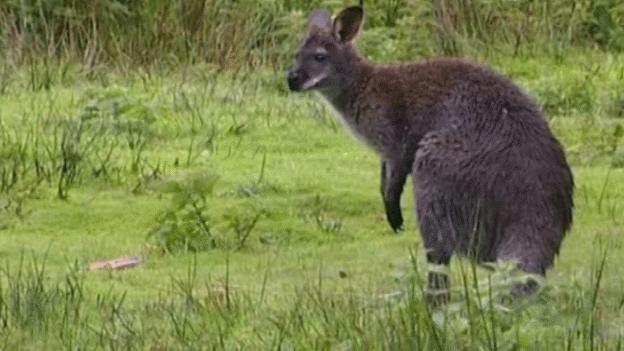Manx marshlands 'almost perfect wallaby habitat'
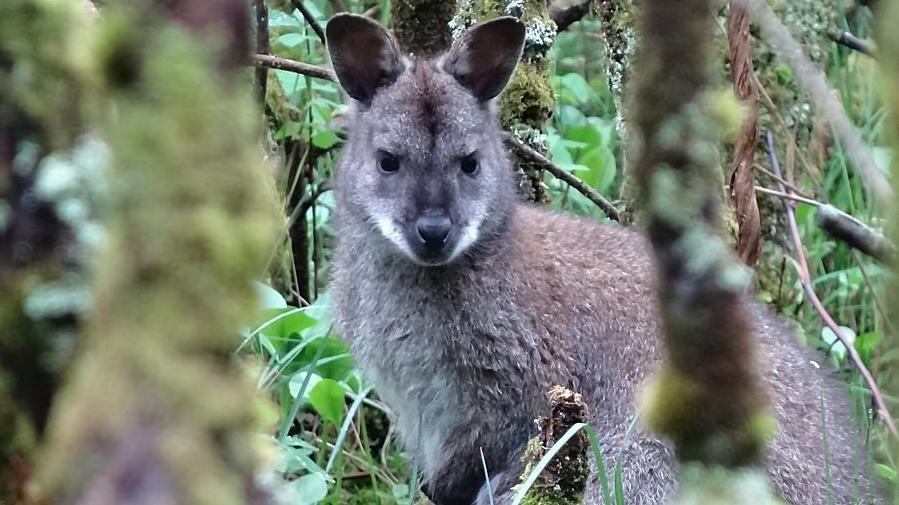
Red-necked wallabies can live up to 15 years
- Published
Conditions in a Manx marshland wallabies escaped to in the 1960s proved "almost perfect" for an expansion in the population to 1,000, a conservation charity has said.
Only a small number managed to break out of a nearby wildlife park, but recent surveys of the Ballaugh Curragh and its surrounding areas show numbers have swelled.
Manx Wildlife Trust chief executive Leigh Morris said the habitat was similar to Tasmania, which was one of the places the species is native to.
That allowed the wild population to grow in the north-west of the island, before migrating to other glens and forests over the past six decades, he said.
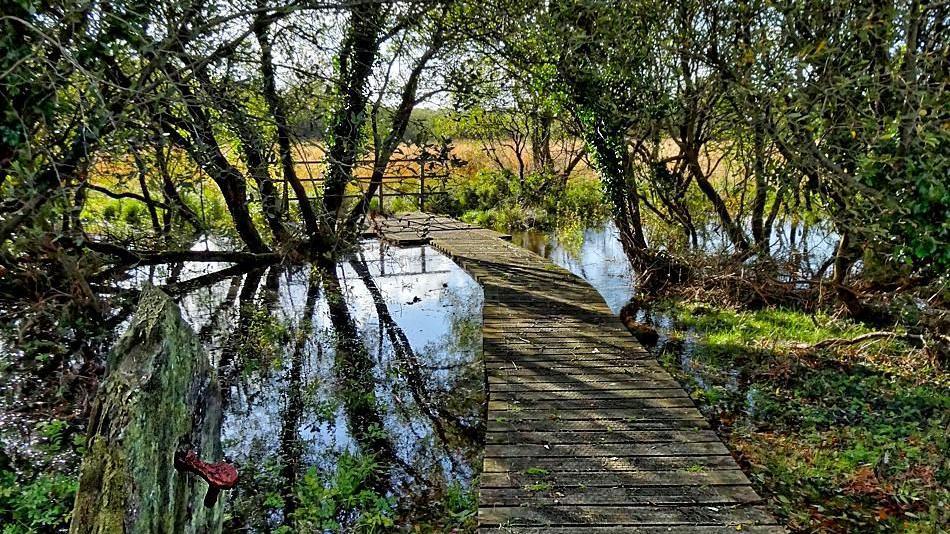
Conditions in the Ballaugh Curragh have proven favourable for the wallaby population
Mr Morris said while people would expect marsupials normally associated with Australian forests to prefer a warmer climate, wallabies were also "quite happy in Tasmania, where it rains a lot and is quite chilly in the winter".
The fact the wetlands, which have been recognised as an internationally important site, were not densely populated or intensively farmed had also allowed the population to expand, he said.
'Serious conversation'
Previous estimates suggested more than 100 wallabies lived in the wild on the Isle of Man, but the new data suggests the total number is likely between 950 and 1,050.
The report's authors said the animals could now also be found in Ramsey Forest and on the western side of Ballaugh Glen.
The Department of Environment, Food and Agriculture (Defa) said it would now evaluate the health of the population before making a decision on whether any management would be needed.
The species has no natural predators on the island and there have been no attempts by the authorities to control the population over the past 60 years.
Mr Morris said, now that the size of it was known, "we should be having a conversation about their impact and their health" and if that number was sustainable.
He said the trust was aware of blind wallabies within the population and, while the reasons were not yet clear, "we have to ask if that is because of inbreeding".
The results of the surveys showed that the island "needs to have a serious conversation" about the issue, led by Defa, he added.
Why not follow BBC Isle of Man on Facebook, external and X, external? You can also send story ideas to IsleofMan@bbc.co.uk, external
Related topics
- Published13 November 2024
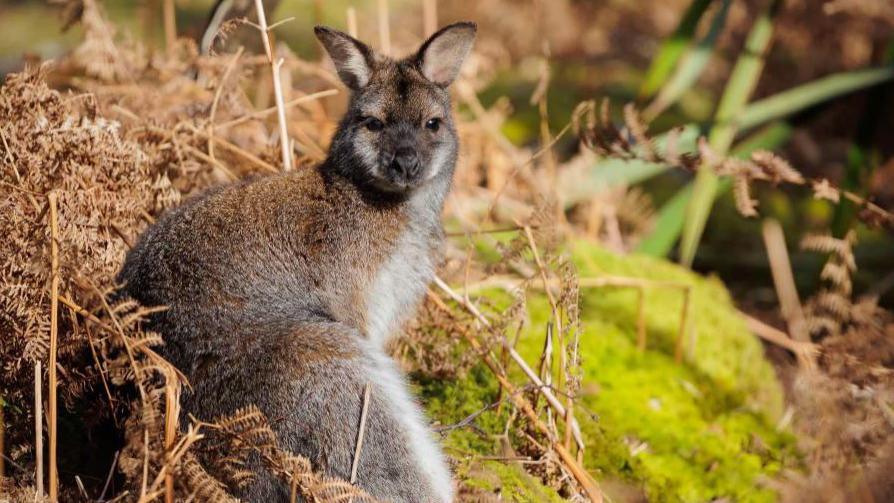
- Published15 May 2023
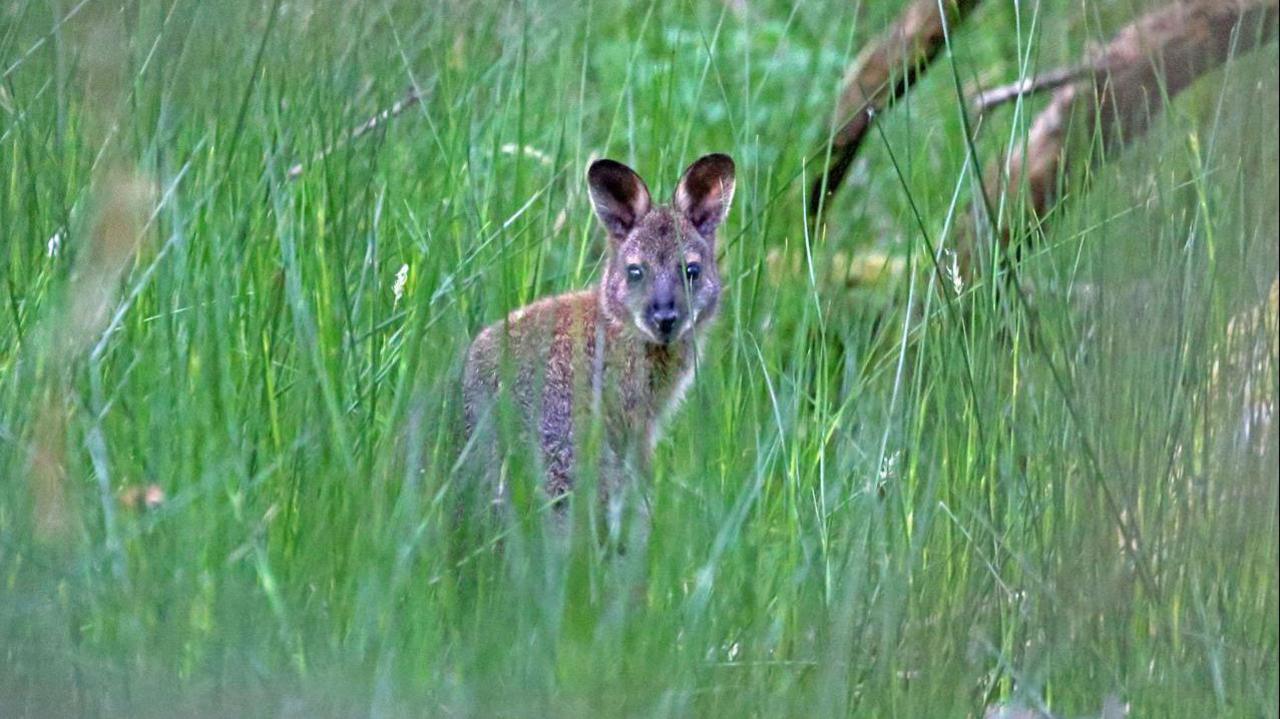
- Published15 April 2022
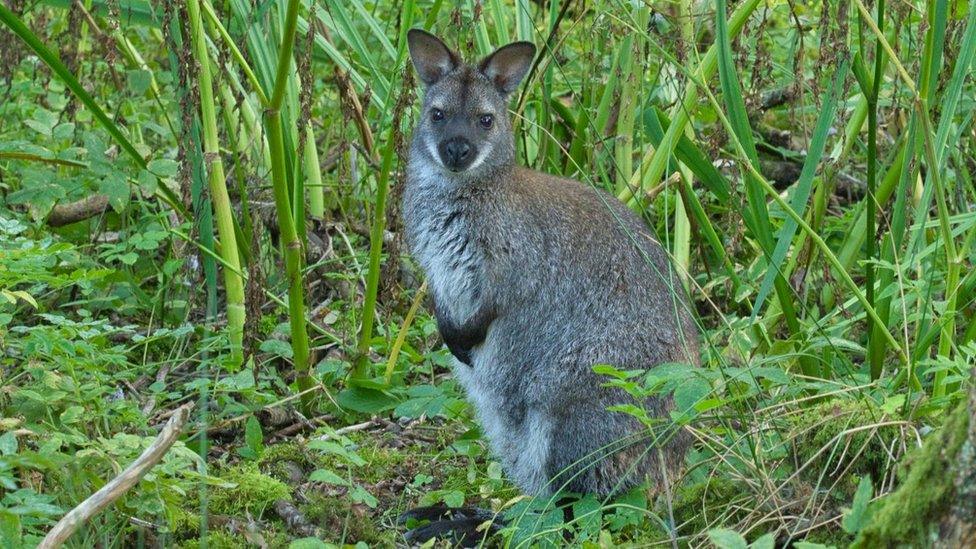
- Published30 March 2022
